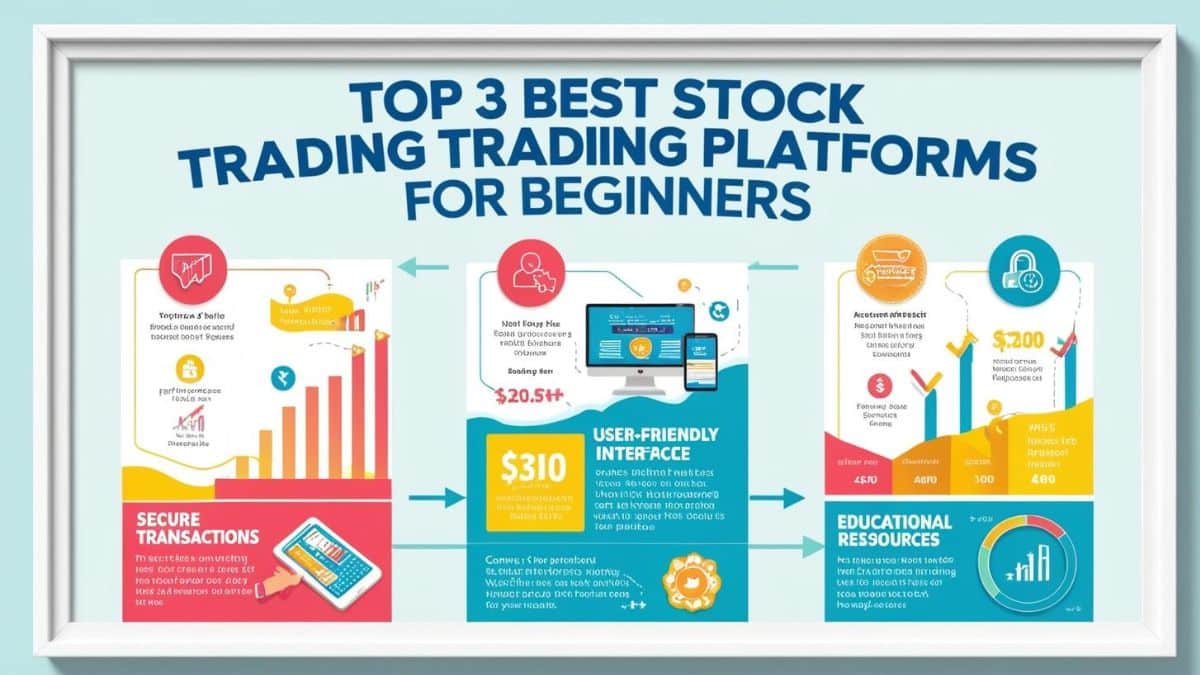Stock trading can be an exciting and profitable venture, but for beginners, it can also be overwhelming. The financial markets are dynamic, with constant fluctuations, and without proper knowledge and strategy, it’s easy to make costly mistakes. These errors often lead to losses, frustration, and sometimes even the abandonment of trading altogether. While success in the stock market is achievable, it demands a blend of education, discipline, and strategic planning. To help ensure your success in stock trading, here are some common mistakes beginners should avoid.
1. Lack of Market Knowledge and Research
One of the most significant mistakes beginners make in stock trading is diving into the market without a proper understanding of how it works. Many new traders jump in based on hype or recommendations from friends or social media, without doing their own research. Relying on hearsay or hot tips is a dangerous way to trade.
Stock trading requires knowledge about market mechanics, individual stocks, sectors, and macroeconomic factors that influence price movements. Beginners should familiarize themselves with fundamental and technical analysis, company financials, valuation metrics like P/E ratio, and broader economic indicators. Understanding how earnings reports, interest rate changes, or global events can impact stock prices is essential.
Investing time in self-education—through books, webinars, financial news platforms, and demo accounts—lays a solid foundation. Without this foundational understanding, the chances of making poor investment decisions increase significantly.
2. Emotional Trading: Letting Fear and Greed Take Over
Emotional trading is another common pitfall for beginners. The excitement of seeing profits can lead to impulsive decisions, just as fear during a market downturn can trigger rash actions. Emotional reactions like panic selling or greed-driven buying often result in significant losses.
Trading requires emotional resilience and a level-headed approach. For instance, fear might prompt a trader to sell during a market dip, locking in losses that might have recovered. Conversely, greed can lead to overleveraging or holding on to a winning position for too long, only to watch profits evaporate.
To combat emotional trading, it’s crucial to rely on logic, research, and a clearly defined trading strategy. Tools like stop-loss orders, target prices, and daily trading limits can help enforce discipline and minimize emotional decisions.
3. Overtrading: Quantity Over Quality
Overtrading is a mistake many beginners make, driven by the belief that constant trading will lead to more profits. However, this approach often results in high fees, poor decisions, and unnecessary risk exposure.
Frequent trading can quickly eat into profits due to brokerage commissions, taxes, and slippage (the difference between expected and actual trade prices). Moreover, excessive trading without a clear edge or well-defined criteria often leads to poor performance.
A better strategy is to wait patiently for high-probability setups that align with your plan. Focus on quality trades backed by sound analysis rather than trying to profit from every market move.
4. Trading Without a Clear Plan
A well-structured trading plan is crucial for success in stock trading. Unfortunately, many beginners neglect this step. Without a plan, it’s easy to make haphazard decisions that can lead to significant losses.
A good trading plan includes:
- Entry and exit rules
- Position sizing
- Risk-reward ratios
- Market conditions for specific strategies
- Tools for analysis
Such a plan acts as a roadmap, helping you navigate through market volatility with confidence. By sticking to a predefined plan, traders reduce the likelihood of making impulsive decisions based on emotion or market noise.
5. Ignoring Risk Management
Risk management is a vital aspect of stock trading that many beginners overlook. Trading without proper risk management can lead to catastrophic losses, especially when leveraged positions are involved.

Effective risk management involves:
- Never risking more than a small percentage of your trading capital on a single trade (commonly 1-2%)
- Using stop-loss orders to limit downside
- Avoiding excessive leverage
- Diversifying across sectors or assets
Consider this: even with a 60% win rate, poor risk management can result in net losses if losses are significantly larger than gains. Preserving capital is just as important as generating profits, especially for beginners.
6. Believing in Get-Rich-Quick Schemes
Stock trading is not a get-rich-quick endeavor. While it is possible to make significant profits, this usually comes with a great deal of time, effort, and risk management. Unfortunately, many beginners fall prey to marketing schemes and “gurus” promising easy money and quick success.
Many of these programs sell unrealistic dreams, encouraging high-risk trades or selling expensive courses with little real value. Always question strategies that promise guaranteed profits or minimal risks—they don’t exist in real trading environments.
Instead of shortcuts, focus on gradual growth through continuous learning, consistent practice, and disciplined execution.
7. Lack of Patience and Unrealistic Expectations
Patience is a crucial trait for any stock trader, but especially for beginners. Many new traders expect immediate results and are often disappointed when they don’t see quick returns. This impatience often leads to abandoning a strategy prematurely or hopping from one system to another in search of faster gains.
However, true success in stock trading is often a marathon, not a sprint. Markets go through bullish, bearish, and sideways phases. It can take weeks or months for a position to realize its potential. Developing patience can help traders avoid costly mistakes and allow investments the time they need to grow.
8. Focusing Too Much on Short-Term Profits
While it’s tempting to focus on short-term profits, beginners should avoid this mentality if they want to build long-term wealth. Short-term trading, such as day trading, can be risky, especially for those who lack experience or access to advanced tools.
Instead, consider longer-term strategies like swing trading or position trading, which allow more time for research and decision-making. Long-term investing leverages the power of compounding and reduces the stress of reacting to every market move.
A diversified, long-term portfolio aligned with your financial goals and risk tolerance is generally more rewarding and sustainable.
9. Failing to Use Stop-Loss Orders
One of the simplest yet most effective tools in stock trading is the stop-loss order. A stop-loss order automatically sells a stock when it falls below a predetermined price, helping to limit losses.
Beginners often neglect to set stop-loss orders, either due to overconfidence or lack of awareness. This can lead to larger-than-expected losses when a trade goes in the wrong direction.
Every trade should have a clearly defined exit strategy, including a stop-loss level based on analysis, not emotions. This simple habit protects your capital and helps enforce discipline.
10. Overconfidence and Ignoring Market Realities
Finally, overconfidence in market predictions can lead to poor decision-making. Even experienced traders cannot predict market movements with certainty, and overestimating one’s ability to forecast the market is a mistake that many beginners make.
The market is influenced by countless unpredictable factors: economic reports, global events, company earnings, investor sentiment, and more. No one can get it right every time.
Instead of trying to predict every move, focus on managing risk, sticking to a process, and learning from mistakes. Approaching the market with humility fosters growth and better decision-making.
Avoiding Mistakes for Long-Term Success
Stock trading offers great potential for profit, but beginners must approach it with caution and discipline. By avoiding common mistakes such as emotional trading, overtrading, and failing to use risk management tools, traders can significantly improve their chances of success.
Always remember that trading is a skill developed over time. With patience, continuous education, and a well-thought-out strategy, beginners can build a solid foundation and thrive in the stock market. Keep learning, stay disciplined, and treat each experience win or lose as a step toward becoming a better trader.








1 thought on “Stock trading mistakes beginners should avoid”